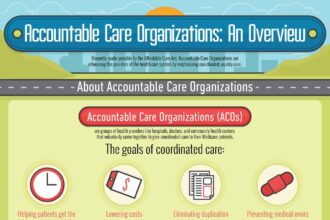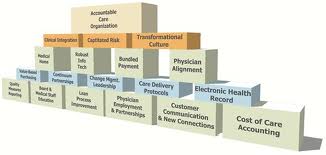Dr. Otis Brawley, chief medical officer for the American Cancer Society, has a new book, “How We Do Harm: A Doctor Breaks Ranks About Being Sick In America.” He’s the expert, so why do I find myself shaking my head?
Dr. Otis Brawley, chief medical officer for the American Cancer Society, has a new book, “How We Do Harm: A Doctor Breaks Ranks About Being Sick In America.” He’s the expert, so why do I find myself shaking my head? (Before launching into this, please look for tomorrow’s blog because I’ll preview what GlobalMed plans to show at the American Telemedicine Association gettogether in San Jose, starting on Sunday.)It must be what he told Tara Parker-Pope whose article appears on the New York Times book review page. The title of the article is “How Doctors and Patients Do Harm.” As Tara points out, Dr. Brawley paints a pretty grim picture about healthcare in our country. He cites three cases in the interview, and probably more in his book. These, and presumably those other cases, make him “furious” when he hears politicians and pundits “assert that American health care is the best in the world.” One woman went untreated for breast cancer so long, she presented at a hospital with her then unattached breast in a plastic bag, hoping that a doctor could put it back on her body.
Then there’s the colon cancer patient dismissed from the practice of an oncologist because the patient lost his healthcare insurance. Dr. Brawley saw the man and discovers the first doctor was using a chemotherapy regimen that “we” stopped using 15 years earlier. I don’t know if Dr. Brawley meant him and his staff or the royal “we,” all of medicine. But he calls the first doctor “greedy.”
In the first two situations, the blame rests with insurance companies and doctors. He blames the patient in the third example for wanting unnecessary chemo treatment for her colon cancer because she had the money to afford it.
Tara quizzes him about the breast cancer patient as to what he was “trying to tell us with that example.” Dr. Brawley said he saw a lot of things in her background that were “lessons for society about what we need to do if we want to defeat breast cancer.” One aspect he cites is a “little bit of denial.” Personally, without knowing much more than the interview, I’d say there was a LOT of denial. But Dr. Brawley decides the real culprit here is insurance because she dropped her policy when it became expensive. And she failed to seek care from Dr. Brawley until 9 or 10 years later when her breast fell off. At that time, when she was uninsured, she received free care from the hospital and lived for about two years more. Dr. Brawley gets mad at the insurance company and the healthcare system, but not at the patient?!?!? Who provided the free care when she no longer had insurance and extended her life another two years after she made incredibly poor choices?
Dr. Brawley describes the doctor who treated the colon cancer patient with a dated chemo regimen as an oncologist with a “wonderful reputation as a doctor to the rich and famous in Atlanta.” We don’t know how the man “lost his insurance,” or why “the oncologist basically dropped him” (sounds like a simplification of what happened), but at least the man did the right thing and went to his public county hospital for treatment. Dr. Brawley says the chemo drugs the oncologist tried allowed the doctor to “get a substantial markup and make a substantial amount of money by selling them.” If insurance covered the treatment, how did the doctor get a substantial markup? Insurance companies are notoriously stingy. If the oncologist received more than he should have in reimbursements, this is fraud. And if he was going to charge the patient more for being his patient, (remember, he is the “doctor to the rich and famous in Atlanta”), perhaps the patient should have looked for another doctor. This was the doctor Dr. Brawley claims was using a dated regimen for colon cancer.
By the way, I hope Dr. Brawley reported his concerns to the Georgia Medical Board if this incident happened when he was Medical Director of the Georgia Cancer Center for Excellence at Grady Memorial Hospital or Deputy Director for Cancer Control at the Winship Cancer Institute at Emory University. I would hope that he would feel a duty to report a colleague who fell below the standard of care whether or not there was a state law in Georgia requiring it. Judging from what he says about the oncologist, this should have been a medical board investigation leading to discipline. The medical board could have suspended his/her ability to practice until passage of a competency exam.
Looking at the final case involving the doctor-shopping female colon cancer patient, Dr. Brawley blames her for ultimately getting chemo from another doctor after he told her she didn’t need it. So, if I understand what happened, he chastises the patient in the interview (and in the book) for seeking a second or third opinion? Hey, if Doctor A and even Doctor B tells me (1) I have colon cancer, and (2) I don’t need chemo, I want to make darn sure. If I accept his diagnosis and treatment plan, then find out that later research says I should have had chemo, my options are greatly reduced. And if I have the money to spend, I use it to be sure in my mind. Meanwhile, this is ONE (1) patient, and Dr. Brawley uses this and the other TWO (2) cases to make a broad general characterization to “blame patients…blame doctors…blame hospitals…blame drug companies.” Who else is left? The government.









